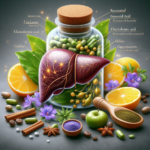Top Health & Wellness Product Reviews with Exclusive Sale Prices!
The Importance of Staying Hydrated for Overall Health

Hydration is a fundamental aspect of human health that is often overlooked in our daily lives. While many people focus on diet and exercise when considering their health, the importance of drinking enough water cannot be overstated. In this article, we’ll explore the various roles hydration plays in maintaining overall health, the signs of dehydration, tips for staying hydrated, and the impact of hydration on physical and mental well-being.
Why Hydration is Essential
Water makes up about 60% of the human body and is vital for many bodily functions. Here are some key reasons why staying hydrated is crucial:
1. Regulation of Body Temperature
One of the primary roles of water is to help regulate body temperature. Through the process of sweating, your body can cool down. When you are dehydrated, your body struggles to maintain a stable temperature, which can lead to overheating and heat-related illnesses.
2. Nutrient Transportation
Water acts as a medium for transporting essential nutrients and oxygen to cells throughout the body. Without adequate hydration, nutrient absorption can be impaired, impacting overall health and energy levels.
3. Joint Lubrication
Hydration plays a vital role in keeping your joints lubricated. The synovial fluid, which cushions joints, is primarily composed of water. Proper hydration can reduce the risk of joint pain and stiffness.
4. Detoxification
The kidneys require water to function effectively. They filter waste from the blood and excrete it through urine. Staying hydrated ensures that your kidneys can efficiently eliminate toxins and waste products from your body.
5. Digestive Health
Water is essential for digestion and the prevention of constipation. It helps dissolve nutrients and fiber, facilitating the smooth passage of food through the digestive tract.
6. Cognitive Function
Research indicates that even mild dehydration can impair cognitive function. Water is necessary for maintaining focus, memory, and overall brain performance. Proper hydration is vital for mental health and cognitive clarity.
Signs of Dehydration
Recognizing the signs of dehydration is crucial for maintaining health. Common symptoms include:
- Thirst: The most obvious sign, indicating your body needs water.
- Dark Yellow Urine: A clear indication of dehydration; urine should ideally be light yellow.
- Dry Mouth and Skin: Insufficient hydration can lead to dryness in these areas.
- Fatigue: Dehydration can cause feelings of tiredness and lethargy.
- Dizziness or Confusion: Severe dehydration can impact cognitive function, leading to confusion or dizziness.
How Much Water Do You Need?
The amount of water a person needs can vary based on factors such as age, gender, activity level, and climate. However, a general guideline is the “8×8 rule,” which recommends drinking eight 8-ounce glasses of water per day (about 2 liters or half a gallon). Some factors to consider include:
- Physical Activity: If you’re active, you’ll need more water to replace fluids lost through sweat.
- Environment: Hot or humid weather can increase your need for hydration.
- Health Conditions: Illnesses, fever, or infections may require increased fluid intake.
Tips for Staying Hydrated
- Carry a Water Bottle: Keeping a reusable water bottle with you can serve as a reminder to drink water throughout the day.
- Set Reminders: Use apps or alarms on your phone to remind you to drink water regularly.
- Infuse Your Water: Adding fruits, herbs, or vegetables (like cucumber or mint) can make drinking water more enjoyable.
- Eat Water-Rich Foods: Incorporate fruits and vegetables with high water content, such as watermelon, cucumbers, and oranges, into your diet.
- Track Your Intake: Consider using a hydration tracker app to monitor your daily water consumption.
- Drink Before Meals: Having a glass of water before meals can help you stay on track with your hydration goals.
The Impact of Hydration on Physical Health
1. Exercise Performance
Hydration plays a critical role in athletic performance. Dehydration can lead to fatigue, decreased endurance, and impaired coordination. Research shows that losing just 2% of body weight due to sweat can negatively affect performance. Staying hydrated enhances endurance, strength, and recovery times, making it essential for anyone engaged in physical activity.
2. Weight Management
Drinking water can aid in weight loss and management. Often, our bodies confuse thirst with hunger, leading to unnecessary calorie consumption. Drinking water before meals can help control appetite and promote feelings of fullness, which is important for maintaining a healthy weight.
3. Skin Health
Adequate hydration is essential for maintaining healthy skin. Water helps keep skin elastic and can prevent dryness and flakiness. While topical products are important, hydration from within is equally crucial for a radiant complexion.
The Mental Health Connection
Hydration also significantly impacts mental health. Dehydration can lead to symptoms such as:
- Anxiety and Stress: Some studies suggest a link between dehydration and increased feelings of anxiety.
- Mood Swings: Inadequate hydration can lead to irritability and mood swings.
- Cognitive Decline: As previously mentioned, dehydration can impair memory and cognitive function, affecting overall mental clarity.
Special Considerations
1. Hydration in Different Age Groups
- Children: Kids often need reminders to drink water, especially during active play.
- Elderly: Older adults may have a diminished sense of thirst and need to consciously ensure they are drinking enough fluids.
2. Hydration During Pregnancy
Pregnant women need additional fluids to support the developing fetus. Staying hydrated can help alleviate common pregnancy discomforts, such as constipation and swelling.
3. Hydration in Hot Weather
During hot months, it’s crucial to drink more water to compensate for the loss through sweat. Electrolyte-rich drinks can also be beneficial.
Debunking Hydration Myths
- Myth: You Only Need Water When You’re Thirsty
- Fact: Thirst is not always a reliable indicator of hydration needs, especially in elderly individuals.
- Myth: All Beverages Hydrate You Equally
- Fact: While beverages like herbal teas and milk contribute to hydration, caffeinated and alcoholic drinks can have a diuretic effect.
- Myth: You Can Overhydrate
- Fact: While rare, overhydration can lead to a condition called hyponatremia, where sodium levels in the blood become dangerously low.
Conclusion
Hydration is an essential pillar of overall health, impacting everything from physical performance to mental clarity. By understanding the importance of water, recognizing the signs of dehydration, and implementing practical strategies to stay hydrated, you can enhance your well-being and quality of life. Remember, drinking water is not just a necessity; it’s a simple yet powerful tool for maintaining your health.







